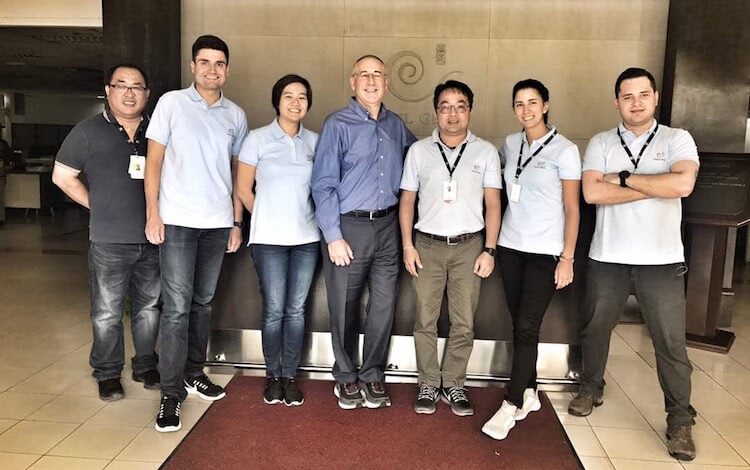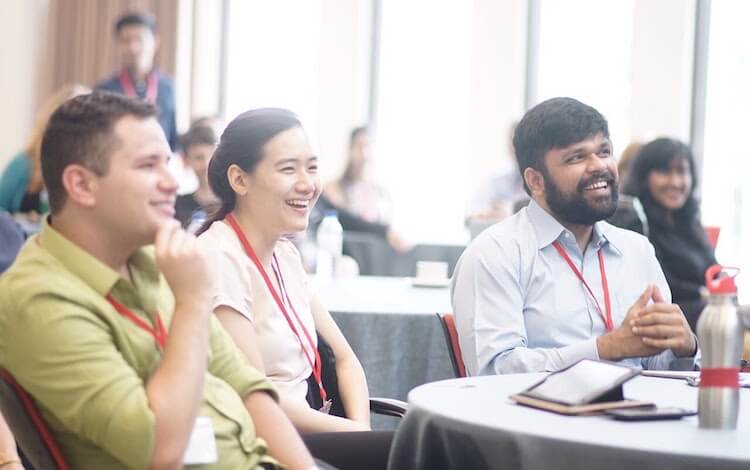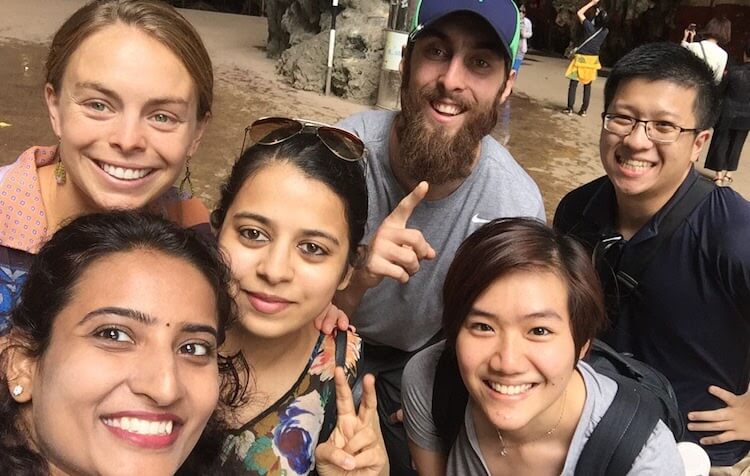Retraining and switching careers, once seen as impractical or even unthinkable, has become common practice for millennials. A study by LinkedIn showed that those who graduated between 2006 and 2010 had, on average, 2.85 jobs in the five years after college. For many applicants, an MBA is an opportunity to discover a new path on their professional journey.
There’s a name for these candidates—career revitalizers. For Sherilyn Ooi, an MBA was her ticket to career revitalization, helping her navigate the switch between law and business while gaining the practical experience and network to transition from one profession to the other.

An opportunity to switch
Sherilyn was always drawn toward business. Working on mergers and acquisitions with international organizations, government agencies, and large multinationals, she saw the global scale of business, as well as the many facets of the transactions they facilitated. The problem was, as a corporate lawyer, her opportunities to delve into business were limited.
“I never saw the end-to-end process, or what drove the process and the transaction,” Sherilyn remembers. She knew she wanted a change and a chance to experience new industries. Staying in the legal profession wasn’t going to offer this. So just three years after graduating, she snapped up the opportunity to study at Asia School of Business (ASB) in Kuala Lumpur.

Grasping the fundamentals
Through her MBA, Sherilyn learned to change her way of thinking about problems from a legal context into a business context, and, more importantly, to fill the gaps in her knowledge. “When you work in a technical field like law, it’s easy to think that’s the most important part of a business transaction,” Sherilyn notes.
The core curriculum at ASB took Sherilyn through the fundamentals of business, demonstrating the varying considerations at every level, and ultimately how to balance multiple priorities as an operations manager. “I gained technical knowledge about how to understand a business and how to analyze information in terms of the decision I am making,” Sherilyn stresses.
While all aspects of business appealed to her, it was only after a core module on the MBA in operations management that her interest was piqued by operations and supply chains. As the hub of many Southeast Asian operations facilities, Malaysia turned out to be the perfect location for her to expand her experience and network.

Understanding nuances through experience
Fundamentally, her ability to switch careers was boosted by the opportunity to get hands-on industry experience. ASB’s Action Learning program requires students to complete five consulting projects over the course of their 20-month MBA, working in teams with companies to address real-world problems. This allowed Sherilyn to expand her interest in operations and see how theory can be practically applied by large corporations.
Through a project at Esquel Group, based in Penang, she discovered how one of the world’s largest clothing manufacturers runs its operations across the world. Here, she worked to improve operational efficiency, as well as develop leadership skills. Another project, this time in strategy, took her to one of Thailand’s biggest hypermarkets, helping them develop their e-commerce platform to take on global competitors like Amazon.
Having experienced operations across Southeast Asia’s major economies, Sherilyn learned the way business varies from country to country and region to region. “It made me understand the nuances of cultural context and background,” she underlines. “We forget how much variety there is in how you collect information and how you communicate, and that’s as crucial as objective data.”
“Come with an open mind”
Having completed her MBA, Sherilyn’s career revitalization is successfully on track. She is now contracting with Google Malaysia as a key account specialist, managing clients in the FMCG industry. For those looking to make the same successful switch as her, she emphasizes the importance of exposing yourself to every kind of expertise and discipline to get a aerial view of business. And most importantly, she says, “Come with an open mind.”





